Former Nato chief: ‘If Ukraine loses, our enemies will decide the world order’
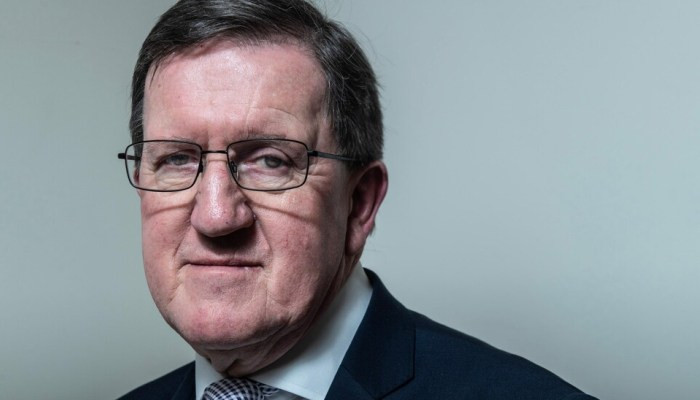 The first thing Lord George Robertson asks of visitors to his office is to look at a painting showing a cross-section of topsoil. At the top, red poppies flutter against a blue sky. In the earth below lies a layer of human bones. “Pretty gory, I know. But it was in storage for years and when I moved into this office I thought no, it deserves putting up. The Serb paramilitaries had rounded up 20 odd kids and their families, put them in a house and then threw grenades in, burnt the house down. I went back [to Kosovo] 20 years later and they presented me with that.” A reminder, perhaps, of just how bad Kosovo could have become if Lord Robertson, then Tony Blair’s Defence Secretary, had not teamed up with other European ministers to push for a controversial Nato intervention. Lord Robertson of Port Ellen has seen his fair share of international crises. As Tony Blair’s Secretary of State for Defence and later the Secretary General of Nato between 1999 and 2003, he presided Nato’s intervention in Kosovo in 1999, the alliance’s enlargement to include former Warsaw Pact members in eastern Europe, and its only ever invocation of Article Five, the North Atlantic Treaty’s self-defence clause, in the aftermath of the Sept 11 attacks. Unlike many retired politicians and generals, he is still viewed by serving defence officials and thinkers as a credible elder statesman. Now, he has a warning: we are living through a period of global volatility “unlike anything in history, and we are not rising to the occasion”. “If they [Ukraine] lose, we lose...because otherwise the world order will be written by the Chinese and the Russians and the Iranians and the North Koreans. And that will make a very, very uncomfortable world for my grandkids.” It is not a reassuring prediction. The war in Ukraine is about to enter its third year, the Middle East is aflame, and Western nerves jangle over Xi Jinping’s plans for Chinese “unification” with Taiwan. And by the end of the year, Donald Trump, who is on record telling European officials that “Nato is dead,” may once again be president-elect of the United States. Some officials are openly warning that Britain may be involved in a peer-to-peer conflict within a decade. Some people say the world has never been so dangerous as it is in 2024. Can Lord Robertson reassure us it isn’t? “Oh, it’s bad,” he says. “People say it’s an incredibly dangerous time. Well, it is. We have never had such a volatility of events, so many things simultaneously happening in politics of both democracies and autocracies. Is it the most dangerous period? No.” Lord Robertson left Nato in 2003, but never really retired. At the age of 77 he is a frantically busy peer, commuting weekly between Westminster and his home in Dunblane where he lives with his wife Sandra (he also has three grown-up children). His one concession to the quiet life is amateur photography – the other end of his office hangs landscapes of his native islands, and he has published a book, Islay and Jura, of his photographs. But most of his time is taken up lecturing newly promoted army majors, reviewing books, and – above all – the House of Lord’s day job of scrutinising legislation passed in the Commons. He’s currently exercised by the wording of the Government’s Rwanda Bill, which effectively declares Rwanda a safe country – despite Britain itself accepting asylum seekers fleeing persecution there. |
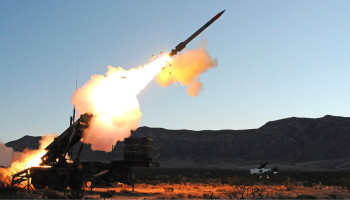
Ukraine asks US for anti-ICBM weapons — media
458Yesterday, 19:36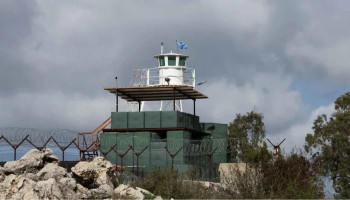
4 Italian peacekeepers injured in rocket attack on UNIFIL base in southern Lebanon
485Yesterday, 19:06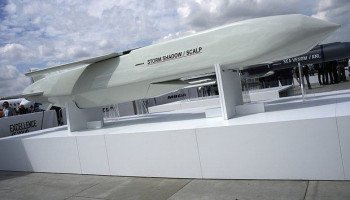
The Times learned about the US permission for Storm Shadow strikes deep into the Russian Federation
68620.11.2024, 17:48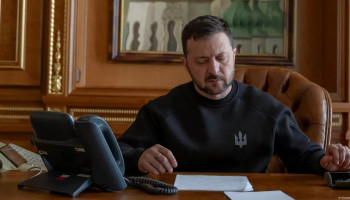
Zelensky: Without US support, Ukraine may lose the war
71720.11.2024, 11:00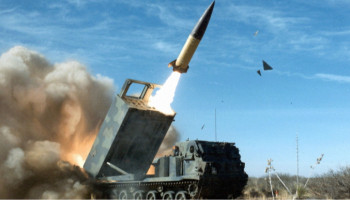
Ukraine hits Russia with US ATACMS missiles for first time on war's 1,000th day (photo)
76320.11.2024, 00:18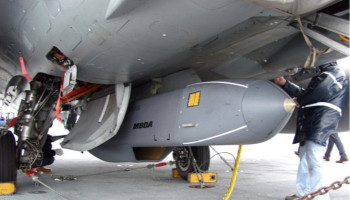
UK could be low on Storm Shadow missiles for Kiev – The Times
104017.11.2024, 21:00
